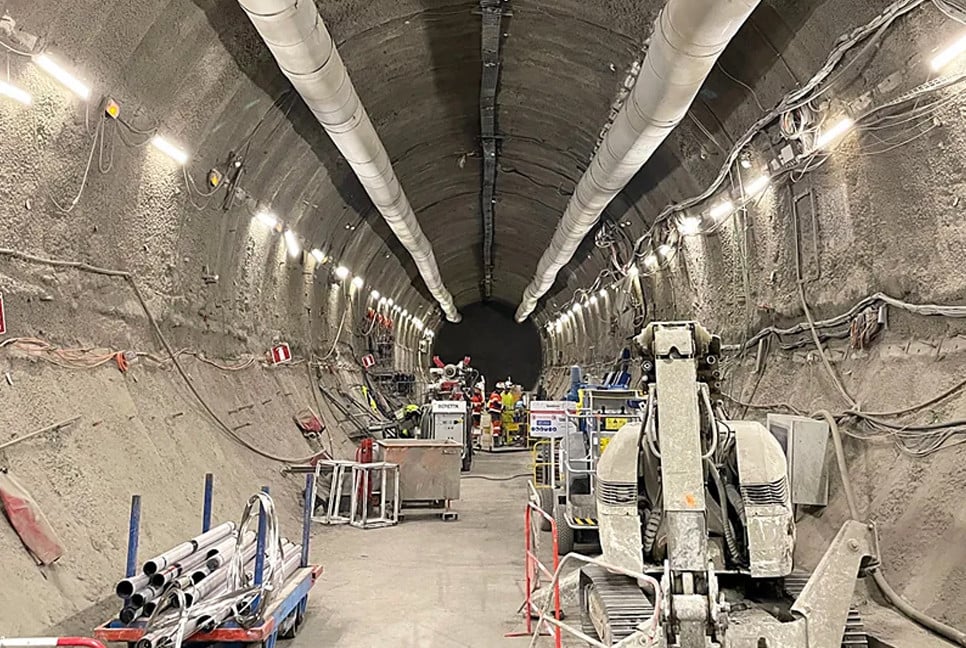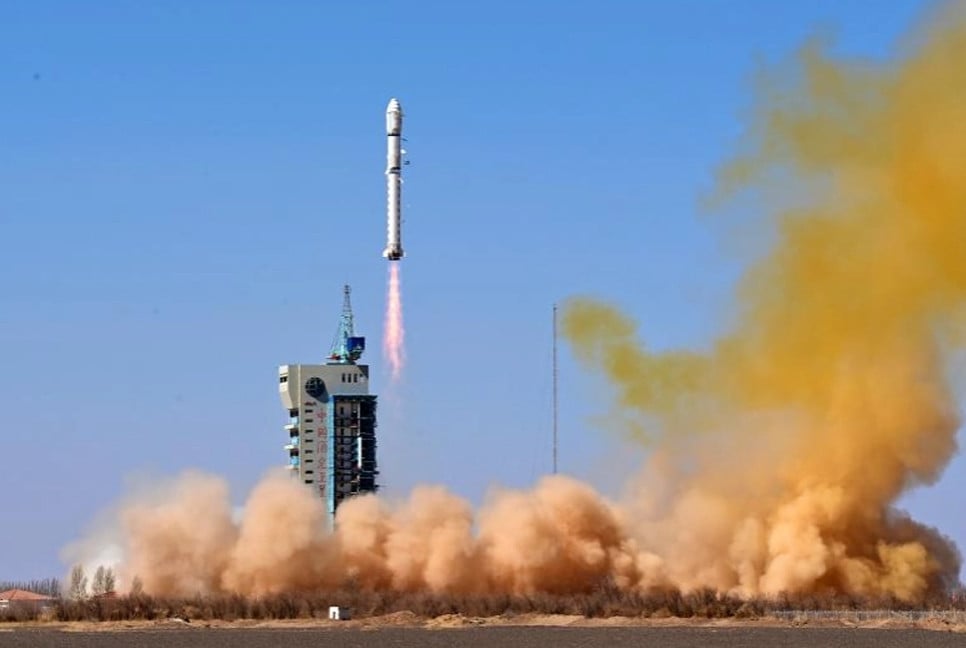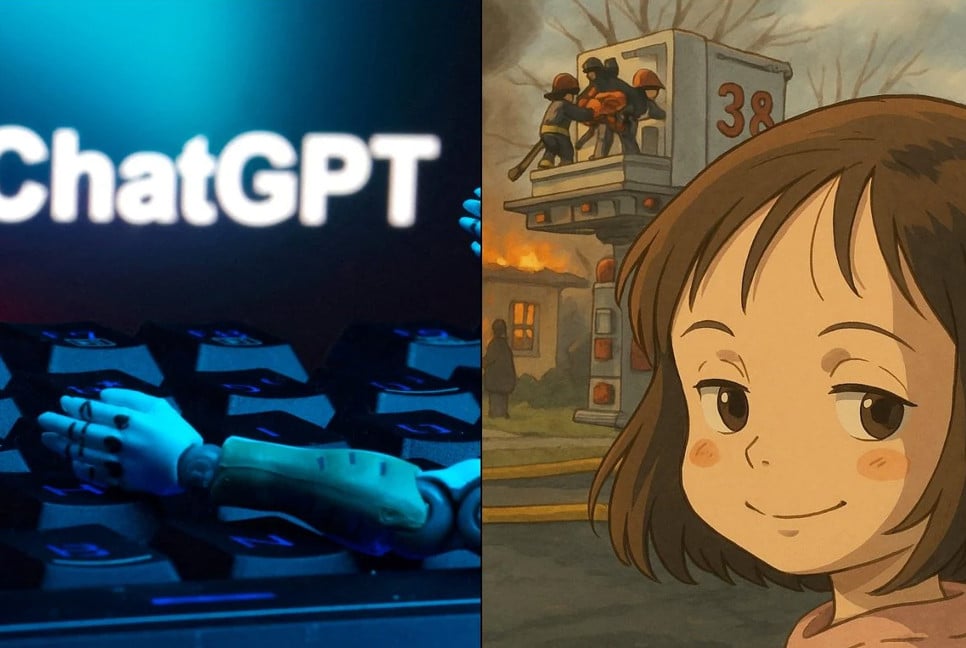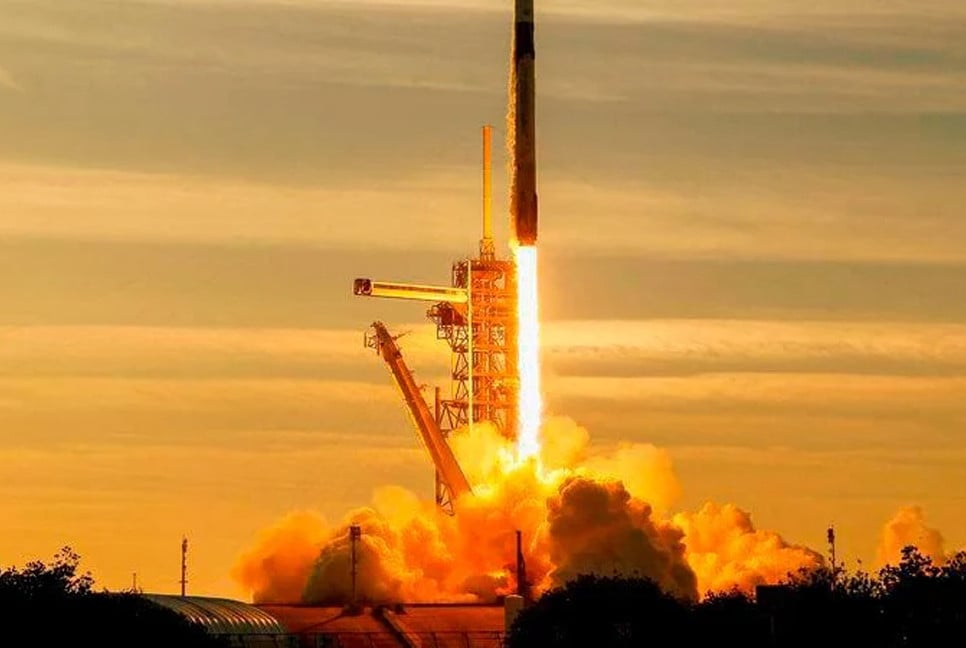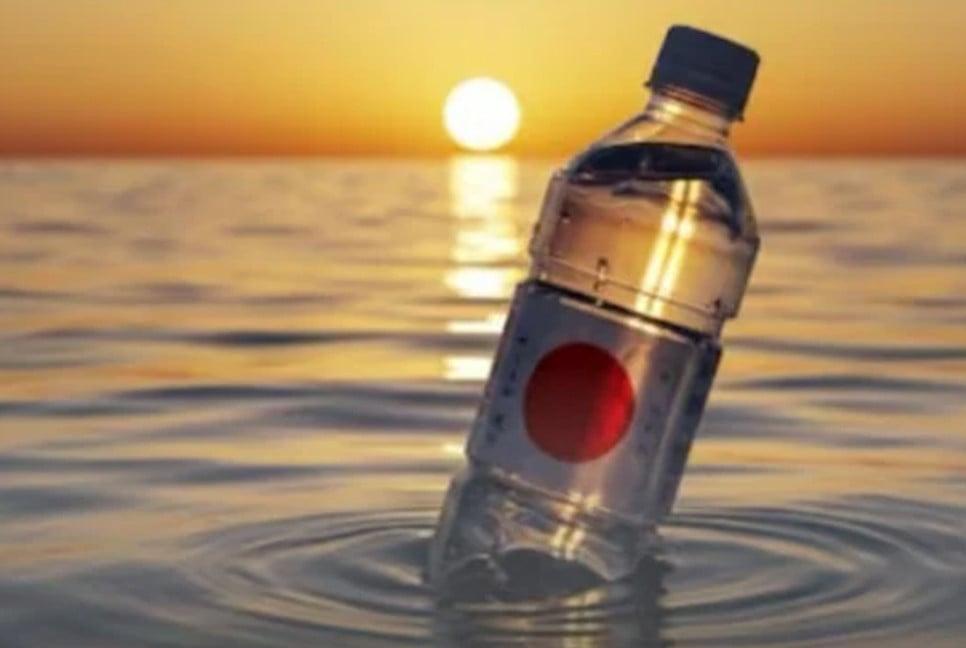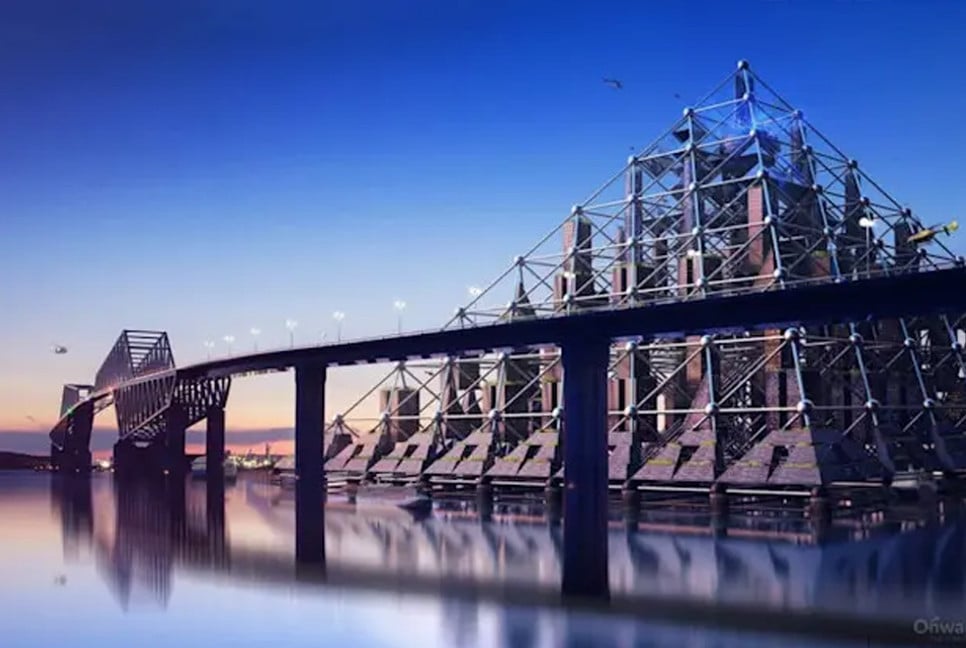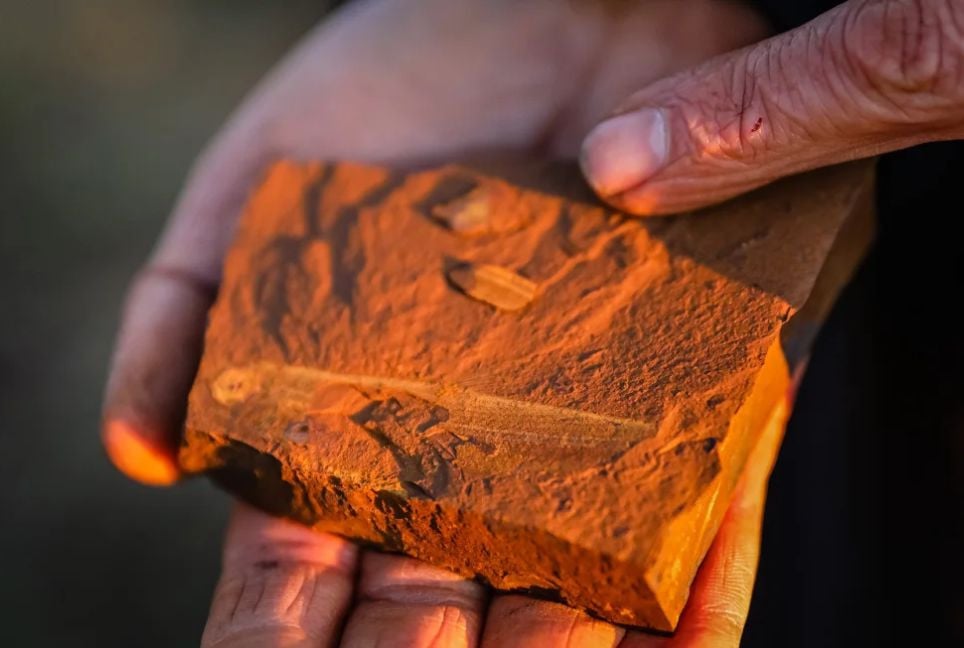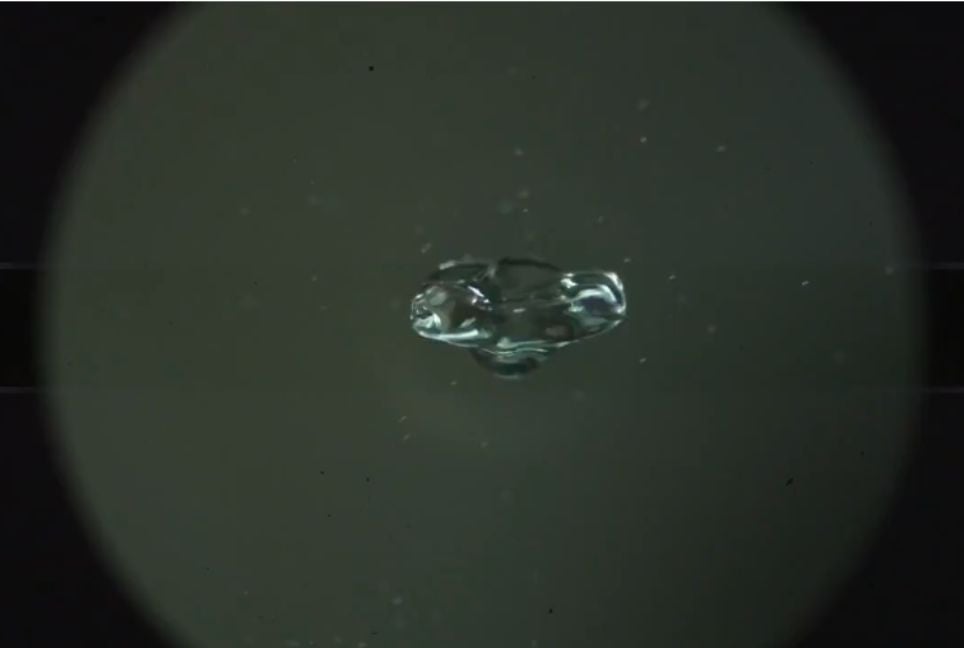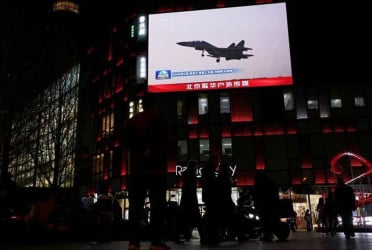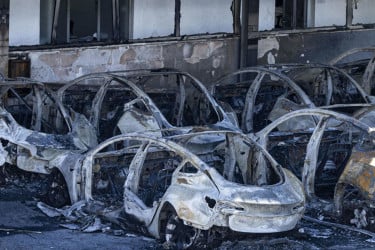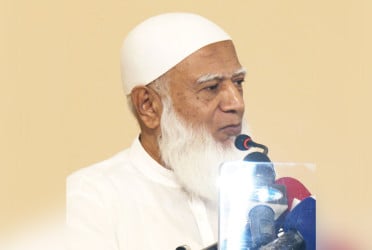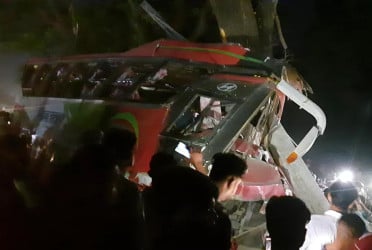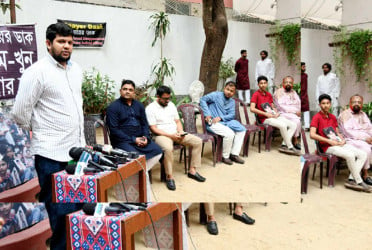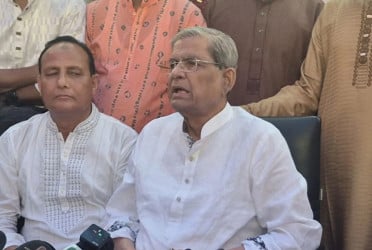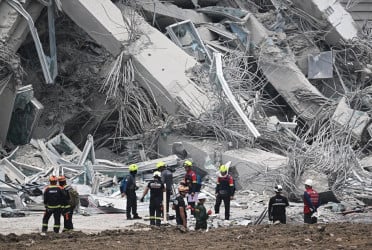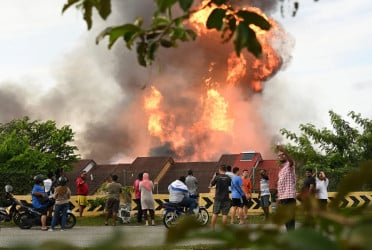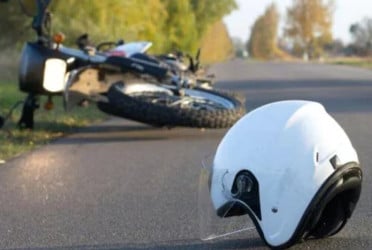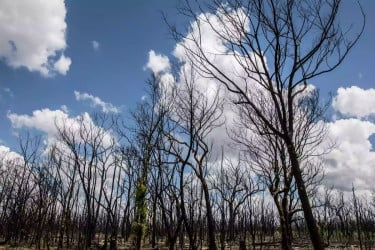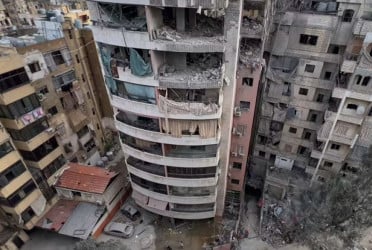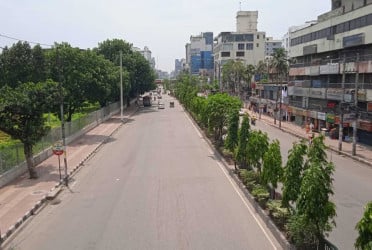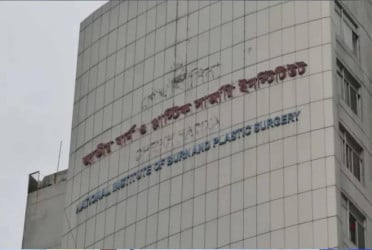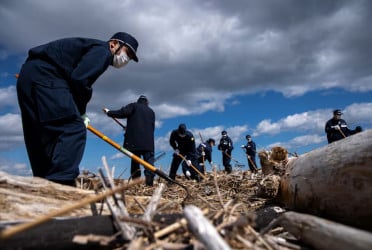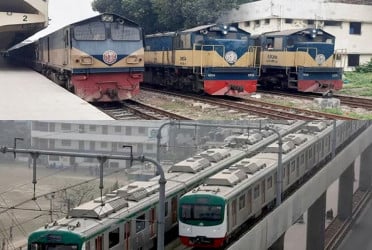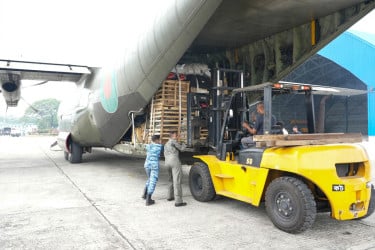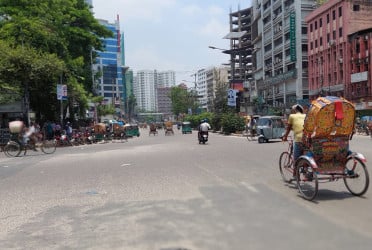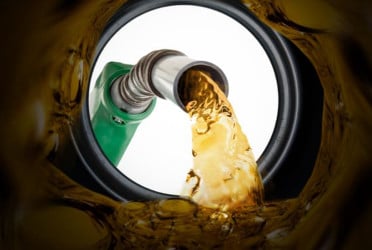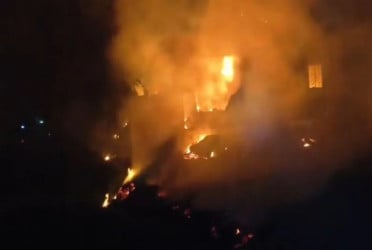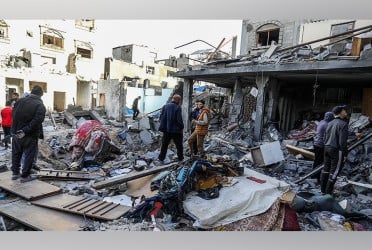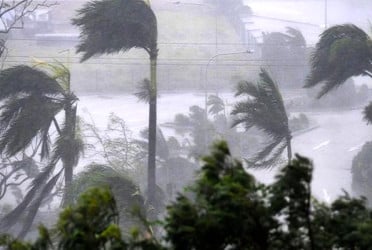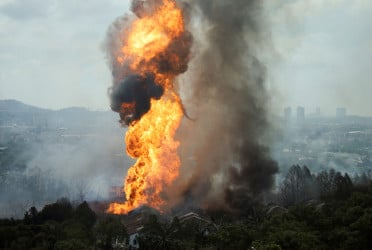Nuclear waste remains toxic for thousands of years. How do you build a storage facility that will keep it safely buried for millennia?
It is a chilly day early in the summer. But 1,500ft (450m) beneath the rolling hills of the Champagne region in northeastern France, it feels much warmer.
This facility's fluorescent lights are bright, and the air is dry. I can taste the dust in the atmosphere. The heavy emergency respirators I have to lug with me are a reminder of the dangers I might face this far underground.
Then I start to become disorientated by the rough, criss-crossing rocky passages of the underground laboratory, the hum of hidden electronic equipment and the lack of people. How do I get back to the lift?
I turn a corner, and there in front of me is a huge chamber, so large that I think for a moment that I have stumbled into a tomb of the pharaohs. But it hasn't been built by the Ancient Egyptians. It was instead carved out of the rock as a burial place for some of the most radioactive substances on Earth: intermediate and high-level nuclear waste.
How do you go about designing, building and operating structures that take decades to plan and even longer to build, that operate over centuries and must survive for 100,000 years, and that contain some of the most dangerous materials on the planet?
Four hours’ drive east of Paris, the 2.4km (1.5 miles) of tunnels are home to countless scientific experiments, construction technique testing and technological innovations. France's National Radioactive Waste Agency (Andra) needs these to demonstrate to the regulators if it is to be awarded a licence to build a geological disposal facility (GDF) next to the tunnels.
Geological disposal facilities for nuclear waste are, or will be, some of the largest underground structures humanity has ever built. They are planned, in development, about to start construction or about to open in the UK, France, Sweden, Finland and around 20 other countries.
Finland was the first country in the world to build a deep geological disposal facility for spent fuel, and it has now conducted the first stage of the trial disposal of the fuel. In Sweden, construction of a GDF is about to start at Forsmark, two hours' drive north of Stockholm, and a similar facility, Ciego, is expected to be built in France relatively soon. In Britain a possible site for such storage has yet to be chosen.
GDFs are epically large, expensive and controversial underground structures designed to contain the most radioactive and long-lived waste produced by the nuclear industry. Currently stored on the surface in facilities such as that at Sellafield in the UK, and at La Hague in France, this waste can include components of nuclear reactors, graphite from reactor cores, spent fuel and the liquid byproduct from the reprocessing of spent fuel from nuclear reactors.
On a computer screen, the plan for any GDF like this looks like a huge, multi-level nuclear shelter. But the process of designing, constructing and operating such a facility occurs on a timescale that is suitably pharaonic. Like the workers who built the pyramids, many of the engineers working on these monumental structures will never see their work completed.
"The licensing for one of these high-level waste disposal facilities takes over 20 to 30 years – we haven't seen any country taking less time," says Jacques Delay, my guide and a scientist at the facility in France, "and then the operation will last for around 100 years before it is sealed." After that, there will be hundreds of years of monitoring of the site.
"The key to siting a GDF is to find a suitable site and a willing host community," says Amy Shelton, a principal community engagement manager for the UK's Nuclear Waste Services (NWS). "But everything starts with the geology."
In countries across Europe, engineers such as Shelton pore over the available geological data for a potential location to see if the rocks buried around 500m to 1km (1,650 to 3,300ft) down are suitable to confine nuclear waste for more than 100,000 years. Rocks like granite and clay are the best for this. But there may be simply not enough data to make a safe decision.
A promising site may turn out to be too close to vital aquifers that supply fresh water to local communities, or to the side of a valley, which in 10,000 years' time may mean it's at risk from an advancing glacier, and the hunt has to start again.
It is easier in some countries than others to find a site. "The Swedish [and Finnish] bedrock is in terms of seismic activity very stable," says Anna Porelius, communications director at SKB, the organisation which manages Sweden's nuclear waste. "It has been a continuous entity... for more than 900 million years. In addition, no new fracture zones form anymore."
Sometimes the human geography is the problem. "Many of the communities who volunteered were absolutely unrealistic, such as they were too close to suburbs of Paris," says Delay. "Imagine building a nuclear waste disposal facility in Harrow or Wimbledon!"
Communities volunteer to host a GDF for reasons such as the promise of much-needed investment and well-paid jobs. Their consent is needed at every step of the way. This may in turn depend on their experience of the nuclear industry to date.
In Britain that experience hasn't been the best. In Finland, it is a different story. "We have been making nuclear electricity since the late '70s," says Pasi Tuohimaa of Posiva Oy, Finland's nuclear waste disposal company. "People know the safety culture; they have family members and neighbours who have been working on the site. So they understand about waste."
Get this wrong, and demonstrations against a GDF can quickly erupt. "During the process in Sweden, SKB learnt valuable lessons about the importance of a positive response to its plans from the local population," says Porelius. "Protests took place in a number of places and at Almunge… against SKB's [test] drillings."
Given the problems in finding a site, it may seem easier, and cheaper, to store this nuclear waste in a disused mine, as Germany did in the 1960s and 1970s with its low-level radioactive waste. "It's a perfectly understandable and natural question to ask: 'Well, we've got these things, so why don't we reuse them?'" says Neil Hyatt, the chief scientist at NWS. "But they have not been built for our purpose – or for the long term, or with nuclear safety in mind."
Certainly, mines were not built with the precision needed for the storage of high-level nuclear waste. "The ramp down to the bottom of the repository is estimated to take… five years to complete," says Porelius. "That is a very long time compared to traditional mining operations."
If a GDF is built where there are still mineral resources to exploit then the chance that the "nuclear tomb" will be disturbed in the future is increased, regardless of whether there is currently mining activity. The last tin mine closed in Cornwall in 1998, but 26 years later Cornish Lithium is planning to extract lithium from the historical mining district due to the demand for electric vehicles.
It might also simply be easier to construct a new purpose-built facility for nuclear waste. "In Finland we are used to building underground to escape the weather," says Tuohimaa. "Building a new facility allows us to plan the whole site from scratch."
Unlike, say, designing a new Airbus airliner, there are few examples to follow when it comes to designing a GDF. Still, it's clear the design will also be all about the geology.
"The design of a GDF is primarily shaped by the thickness of the rock formation," says Delay, "which in this case [of France's planned GDF] is enough for just one level rather the two or three or four as originally planned."
Then there is the nature and volume of the waste, and the amount of heat it generates. Intermediate waste produces less heat and so it can be stored safely, with containers stacked relatively close together in large vaults. High-level nuclear waste produces a great deal more heat, and must be stored in small amounts, far apart.
There is also the need for physical barriers to stop radiation from escaping from the GDF, which can range from the design of the containers to the type of rock that surrounds it. But critics fear these barriers may fail over time.
Lifts can seem an attractive way to haul the waste down to its final resting place around 500m (1650ft) underground, but that raises alarming scenarios of a container stuck in a lift or lifts plummeting to the bottom of a shaft. A ramp with a slope of around 12% may be safer because systems can be put into place to stop a sledge running out of control. It may be best to build both.
One solution to the challenge of building a GDF is to work on a shared design with other nations. This is what the Swedes and Finns did, and they called it the KBS3. "They knew wherever they dig the rock is going to be hard so… the choices were basically laid out for them already," says Hyatt. "Whereas we [in the UK] are still choosing the target geology."
The designers' biggest headaches may result from a simple equation: the speed of technological change versus the length of the project. "This timescale means it's impossible to know if we will be using this technology [to contain the waste] in 20 to 200 years' time," says Delay. "But we have to demonstrate today that we have a solution to these problems in the future."
French engineers have built a funicular for a 4km (2.5 mile) ramp to prove the safety features needed to stop a runaway container. They have also shown how a robot like Boston Dynamics' autonomous robot dogs could "without any human intervention be used to move waste canisters knocked out of place by an unexpected event like an earthquake," says Delay.
The engineers have, he adds, even developed a robot to "recover a cannister from a corroded cell" by crawling along the long, narrow, claustrophobic tunnels that will contain high-level nuclear waste. Its job will be to clear any blockage and pull the cylindrical waste containers to safety.
In Sweden, plans are further advanced. According to Porelius: "Sometime during the 2080s the repository will comprise something like 60km (37 miles) of tunnels with room for more than 6,000 copper canisters of spent nuclear fuel… The deposition of the nuclear waste will be done by custom-designed machines that can be remotely operated with great precision.
"Magne is one example of a prototype machine that we have built," adds Porelius. "The machine will be used to place the copper canisters in the deposition holes 500m (1,650ft) down in the bedrock."
But technology rarely evolves how we expect it to. "It'd be foolish to think that you could rely on today's technology in a facility with the timescale of a GDF," says Hyatt. "So, we must design the facility to be repairable, upgradable, replaceable and resilient."
The designers of a GDF must contend with one more complication: the principle of retrievability. In France there is a legal requirement that any waste that is deposited in the GDF during its operational phase can be retrieved safely. In Britain, it's more a general guiding principle.
But the process of retrieval becomes progressively more difficult as each vault is sealed, until the entirely facility is sealed for good.
Others are more sanguine about it. "We are burying the fuel spent fuel for good, but there is also reversibility," says Tuohimaa. "When it's sealed, it's sealed… but the world may look very different in 100 years' time. " For Delay, "when it's sealed it is a question for society not technicians".
In the end, the timescales are hard to grasp when it comes to nuclear storage, and these projects will take hundreds of years to complete. So what motivates these in-demand specialists today to work on a project they are unlikely to see completed?
"For most of us it's the sense of purpose," says Porelius. "None of us might see the project of the final repository completed, but what we do now and how well we execute the solution of nuclear waste affects the coming generations. Doing that well… gives us the motivation to go forward.
Source: BBC
Bd-Pratidin English/ Afsar Munna

